
1. World on ‘Thin Ice’ as UN Climate Report Gives Stark Warning
Humanity still has a chance, albeit close to the last, to prevent the worst of climate change’s future harms, a top United Nations panel of scientists noted.
This would require quickly slashing nearly two-thirds of carbon pollution by 2035, according to the Intergovernmental Panel on Climate Change. The United Nations chief put it bluntly, calling for an end to new fossil fuel exploration and for rich countries to quit coal, oil, and gas by 2040.
This is likely the last warning that the scientists will be able to give regarding the 1.5 mark, as their next set of reports may come after Earth has either surpassed the mark or is on the brink of doing so. The report does offer hope if action is taken, using the word “opportunity” nine times in a 27-page summary. However, that word is overshadowed by 94 uses of the word “risk.”
Thank you for your generous gift that will help us continue the production of this weekly, free publication
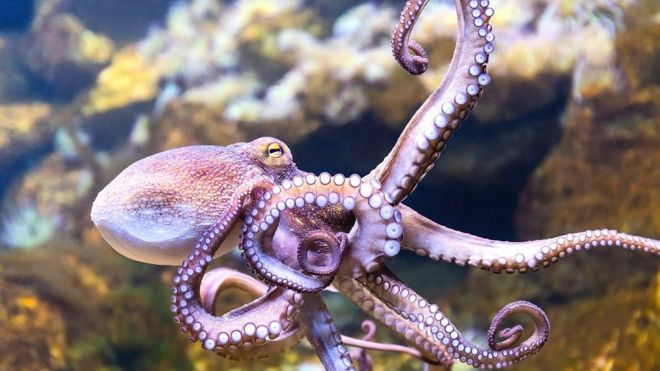
2. Plans for World’s First Octopus Farm Spark Animal Welfare Concerns
Plans to construct the world’s first octopus farm in Spain’s Canary Islands have caused concern among scientists about the creatures’ welfare. Nueva Pescanova, a Spanish seafood corporation, plans to produce 3,000 tons of octopus per year to serve U.S., South Korea, and Japan markets.
This would require one million animals annually, with 10-15 octopuses per cubic meter of tank.
The corporation believes that the farm is a step toward sustainability for dwindling octopus populations. Although Nueva Pescanova claims they will adhere to welfare requirements such as monitoring tank size and temperature to minimize the octopuses’ suffering, the proposal indicates an estimated mortality rate of 10-15%.
Scientists are concerned about the proposed ‘ice slurry’ method of slaughtering octopuses, as research has shown that these animals are capable of feeling pain. There are also concerns about wastewater from the farm polluting the surrounding environment.

3. Discarded Crab Shells Can Be Transformed Into Material for Sodium-Ion Batteries
According to a study published in ACS Omega, waste crab shells could be transformed into useful battery material for sodium-ion batteries, which are cheaper but less energy-dense than lithium-ion batteries. This could lead to the addition of crab shells to the growing list of sustainable materials that can be used in biodegradable batteries.
The crab shell chitin possesses two essential properties: its high carbon content and its hardness. The researchers heated waste crab shells to 700°C for two hours in an oxygen-free environment and then purified them with hydrochloric acid. This process yielded “crab carbon,” a source of pure, hard carbon, which was then mixed with either iron sulfide or tin sulfide, creating an anode for a sodium-ion battery.
The researchers tested both anodes in a battery and found that they had similar capacities to other experimental sodium-ion batteries and lasted for at least 200 charge and discharge cycles.

4. How A Rabbi’s Faith Drives His Ocean Conservation Advocacy
Rabbi Ed Rosenthal is a strong advocate of the power of water. As the founder of Tikkun Hayam (“Repair the Sea”), he works tirelessly to raise awareness and encourage action to address the many threats facing the oceanic environment.
For Rosenthal, caring for the environment comes from a deeply Jewish perspective. In a conversation with Jewish National Fund-USA’s IsraelCast host Steven Shalowitz, Rosenthal shared how his Jewish faith drives his environmentalism. “We’re commanded to be stewards of the planet,” he said. “We recognize that the planet was created by God, and the Torah commands us to be stewards of the planet. We have an obligation as Jews to preserve the environment and the natural world.”
Rosenthal added, “Seventy percent of our planet is covered by water, and that’s just the ocean. Water is so ubiquitous that we take it for granted. But it’s very simple – if the ocean dies, we all die.”
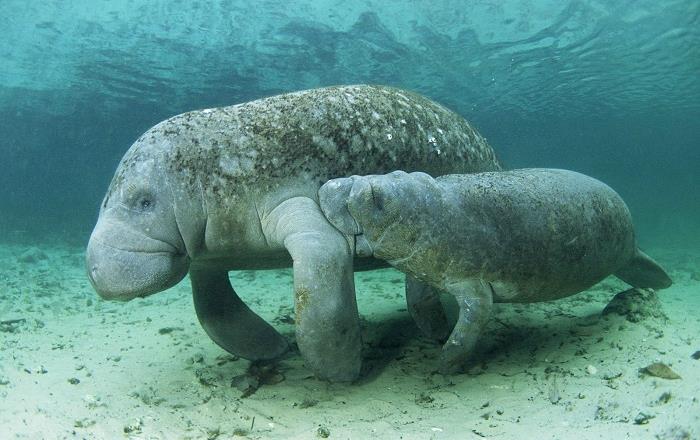
5. Calls for Relisting Florida Manatee as Endangered Species Surface amidst Concerning Increase in Deaths
The nonprofit Ocean River Institute is urging the U.S. Fish & Wildlife Service to relist the Florida manatee as an endangered species rather than a threatened one. The group has cited a concerning increase in the species’ deaths in recent years. They claim that the loss of 90% of seagrass due to harmful algae blooms, pollution, and propeller damage has caused hundreds of manatees to starve each winter.
In 2017, the EPA downgraded the manatee’s status from endangered to threatened. However, with over 1200 manatee deaths reported in Florida in 2021 and over 800 in 2022, the group believes that relisting is necessary. They argue that manatees play a crucial role in Florida’s ecosystem by preventing overgrown vegetation, reducing invasive species, and maintaining waterways. Relisting them will obligate the government to better rescue and protect them.

6. Recycling Advocates in Fiji Unite to Promote Plastic-Free Pacific on Global Recycling Day
Despite facing opposition and being underestimated, recycling advocates in Fiji were able to unite like-minded and passionate individuals to build a movement in the recycling and waste management industry. They introduced a dedicated initiative called Plastic Free Day on Global Recycling Day 2023, which prompts people to reflect on their plastic use and its impact, as well as proper disposal of plastic waste.
The theme for this year’s event, “Plastic-free Pacific,” aimed to raise awareness about the impact of plastic pollution on the environment, food chain supply, and livelihood. The advocates used the Plastic Free Day to encourage everyone to reflect on how plastic waste is disposed of and to participate in a recycling program.
This year’s Global Recycling Day was dedicated to representing the voices of people not only in Fiji but throughout the Pacific.
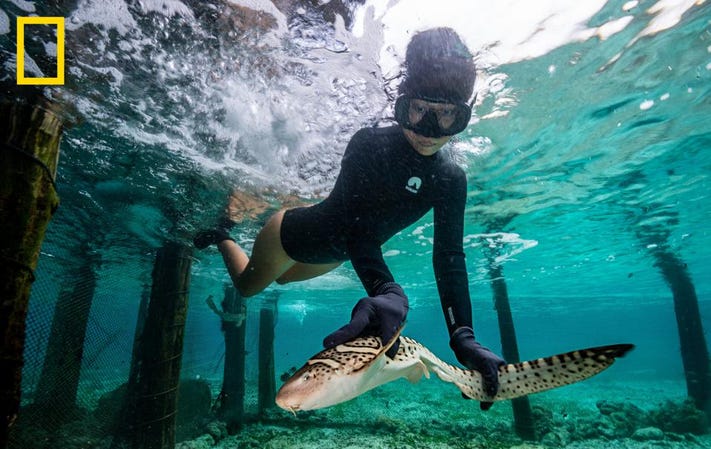
7. World’s First Major Science-Backed Shark Reintroduction a Success
ReShark is an international project comprising 75 partners from 15 countries. The project releases aquarium-bred zebra sharks into protected areas with the aid of shark nannies and scientists. ReShark breeds them into adolescence and releases these sharks into marine protected areas with the objective of repopulating regions where they have gone extinct.
With the support of scientists like Nesha Ichida, who oversaw the release of female zebra shark Kathlyn and male zebra shark Charlie into the open ocean of Indonesia’s Wayag Islands, ReShark has achieved a significant milestone. This accomplishment provides hope that they can restore the zebra shark population that has been decimated by shark finning and overfishing.
Zebra sharks are often hunted for their meat, liver, or fins, which are used in shark fin soup. ReShark aims to release 500 more sharks over the next several years, following in the footsteps of Kathlyn and Charlie’s successful venture.
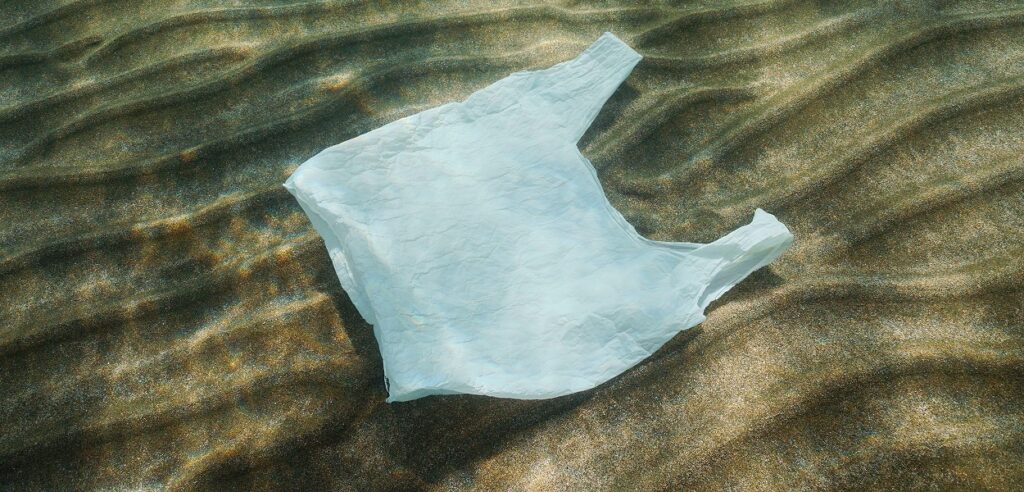
8. Plastic Bags are Leaving Their Mark on the Deep-Sea Floor
At the bottom of the Philippine Trench, 10,000 meters down, plastic bags are altering life on the seafloor. In 2021, marine biologist Alan Jamieson, along with microbial oceanographer Deo Florence L. Onda and their crew, witnessed plastic bags being dragged by deep-sea currents along the seafloor of the Philippine Trench. These bags left behind parallel lines, akin to tire tracks, as they scraped the seafloor.
The impact of these bags on the seafloor can be significant, affecting deep-sea life and altering the environment to the point that it is unrecognizable to the animals that live there. The bags are compared to bulldozers in a forest, disrupting the limited food sources available to deep-sea creatures that come from organic matter that falls from the surface.
Furthermore, it is believed that these bags can also disrupt how carbon is stored in sediments, although more research is needed to confirm this idea.

9. Anti-Incineration and Plastic Pollution Campaign Launched in Ghana
The Green Africa Youth Organization (GAYO) has launched the Anti-Incineration and Plastic Pollution Campaign in Ghana to educate communities about the hazards of open burning and plastic pollution on the environment and public health.
To achieve the campaign’s objectives, GAYO has established the GAYO Eco-Club Campus Chapters (GECCC) on university campuses, which undertake community-based activities and awareness-raising initiatives.
The GECCC teams have visited the Cheyohi and Tinana communities in the Kumbungu and Wa West districts in Northern Ghana to educate community members about the hazards of open burning and advocate for alternative local waste management solutions.
The visits have yielded pledges and commitments from community members and leaders to ending plastic pollution and open incineration.
The campaign aims to create a culture of sustainable waste management practices and promote collective action towards reducing waste and creating a cleaner, healthier environment.
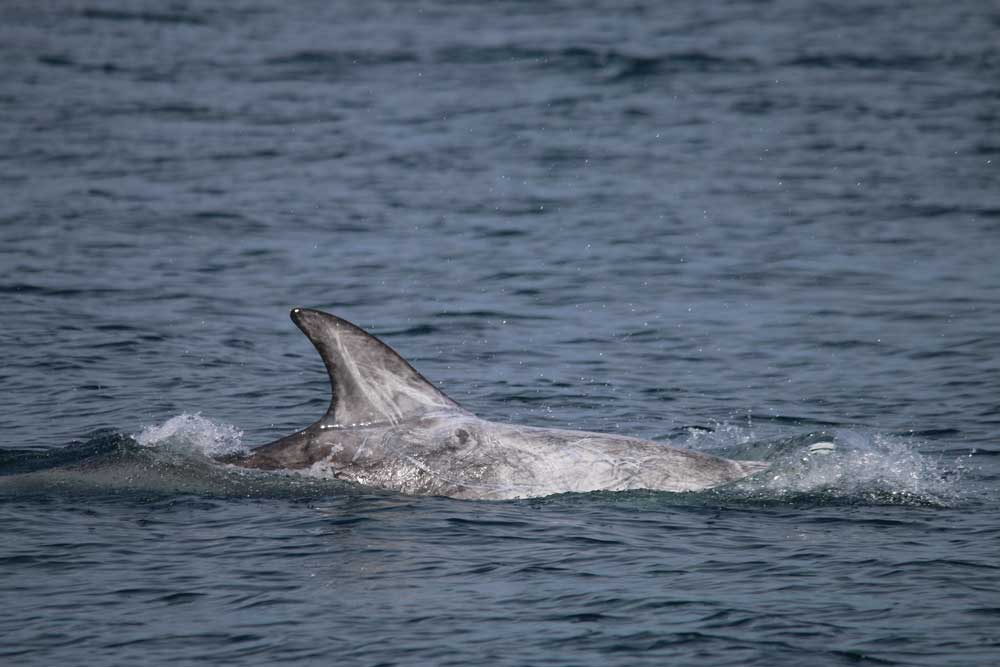
10. Pod of Risso’s Dolphins Spotted off the Coast of Israel
According to the Israel Nature and Parks Authority (INPA), a pod of about ten Risso’s dolphins (grampus griseus) were spotted swimming off the coast of Eilat, Israel. As Israel’s coast is an important habitat for common dolphins, local marine experts have known of the pod’s existence for some time. They are able to distinguish the pod, as some of the member dolphins have visible identification marks on their dorsal fins.
“The common dolphin is an endangered species in the Mediterranean Sea,” inspector Avitar Ben Avi said. “I was happy to have documented some of them.”
These marine mammals are a protected species in Israel, and therefore the INPA states that the public should avoid interference and give them a large amount of space if they spot them. It is also advised not to feed or come in contact with them.
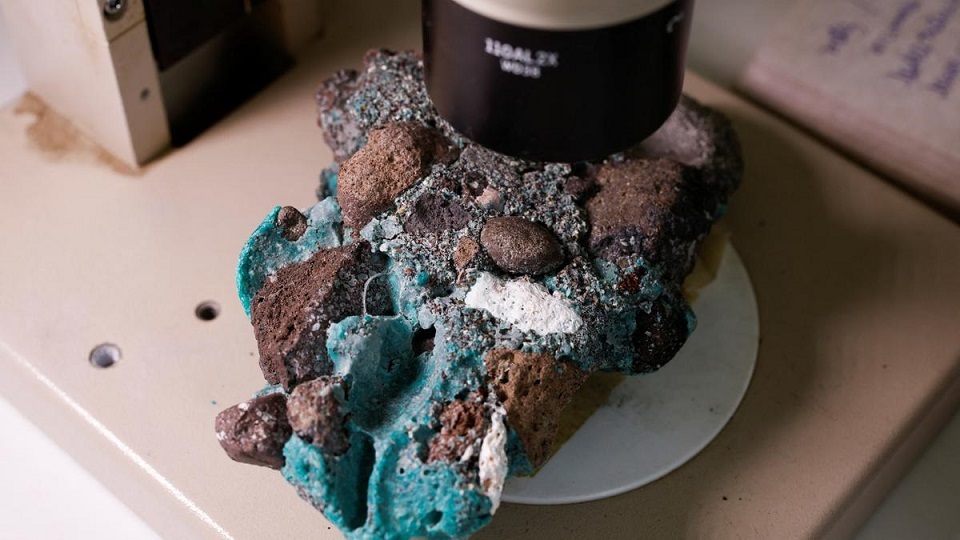
11. Plastic Rocks Found in Brazil: Trinidade Island Ecosystem Under Threat
Trindade Island, the easternmost and most remote point in Brazilian territory, is a vital nesting spot for green sea turtles and a habitat for various seabirds and marine creatures.
Recently, scientists discovered rocks made of plastic debris on the island, evidence of human impact on the earth’s geological cycles. According to the researchers, plastic from fishing nets, which accumulate on the beach, melts and becomes embedded with the beach’s natural material.
The United Nations reports that decades of overuse and a surge in single-use plastics have led to devastating levels of marine pollution. Nearly 12 million tons of plastic are swept into the oceans annually, leading to the emergence of ‘islands of plastic’ and microplastics that contribute to over 80% of ocean debris.
To protect Trindade Island’s unique ecosystem, the area is now designated as a protected area, with no human inhabitants or tourist activity.
.
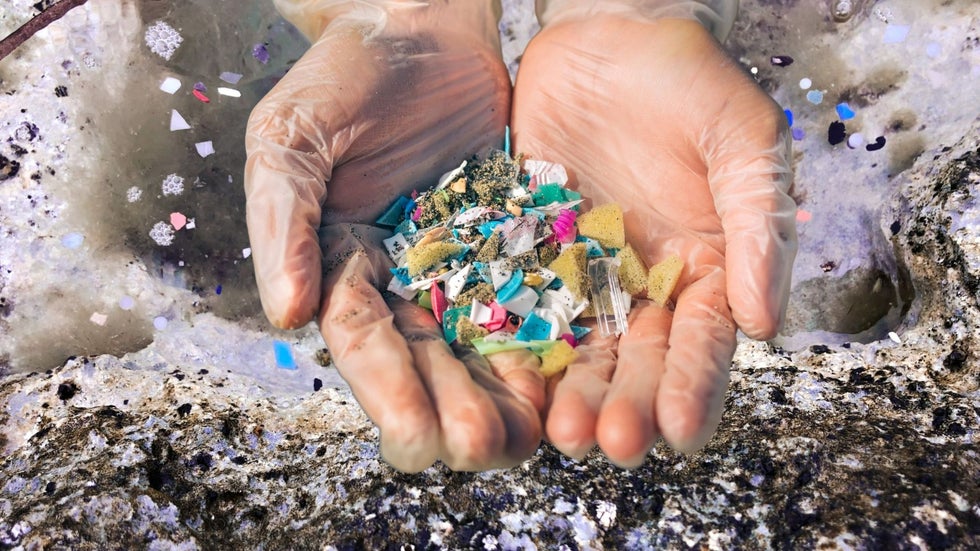
12. Nanoplastics Cause Extensive Congenital Malformations during Embryonic Development by Passively Targeting Neural Crest Cells
Nanomaterials are prevalent in the human environment as pollutants and are being actively developed for use in human medicine. The authors of a study in Environment International found that polystyrene nanoplastics cause a wide range of severe congenital malformations in the chick embryo. They also provide the first evidence that nanoplastics cause severe defects in the heart and great vessels.
Furthermore, the study explains that the mechanism of nanoplastics’ toxicity is their binding to neural crest cells. This is the first evidence that nanoplastics disrupt the migration and survival of an embryonic population of stem cells. These findings are important, given the large and growing burden of nanoplastics in the environment.

13. Calamari Is a Climate Winner for Your Dinner Plate
Squid’s appeal goes far beyond flavor. It is hailed as a climate winner for the dinner plate by fishers, mongers, and marine biologists. As a member of the Cephalopoda class, along with octopuses and cuttlefish, squid has high growth rates, short lifespans (especially compared with large finfish such as salmon and tuna), and high plasticity, meaning they can alter their behaviors and bodies based on their environment, such as their size at maturity.
This constant adaptation allows the species to better survive the changing state of the ocean, particularly in warmer waters.
This adaptability has turned squid fishing into a new industry in Oregon. Although it is nowhere near as big as the local Dungeness crab industry, which was worth almost $73 million in 2020, the roughly $6 million market value for squid that year makes it increasingly important.
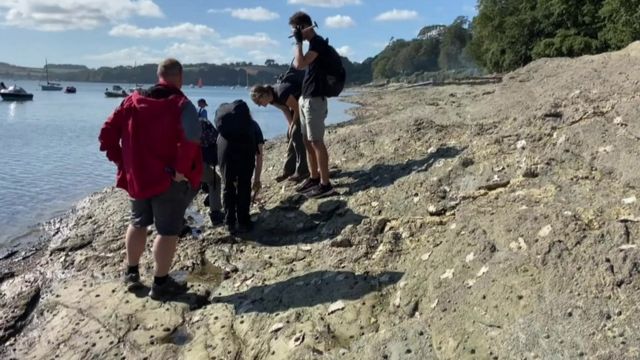
14. Debate Ensues Over Plan to Phase out Pacific Oyster Farms in Cornwall, England
A plan from the Duchy of Cornwall, which manages land owned by the Prince of Wales, that would “phase out” Pacific oyster farms to protect native species has sparked concern in the shellfish industry. The plan is due to the species’ classification as non-native and invasive.
The Shellfish Association of Great Britain (SAGB) warned curtailing the industry would damage businesses.
Matt Slater, marine conservation officer at the Cornwall Wildlife Trust, argues the species, brought to the UK from the US and Canada and farmed during the 1960s and 1970s, is detrimental.
Meanwhile, David Jarrad from the SAGB said native oysters had been hit by disease, pollution and overfishing, rather than a Pacific oyster takeover. He added that all other European countries support their agricultural industry and called for the species to be reclassified as naturalized.
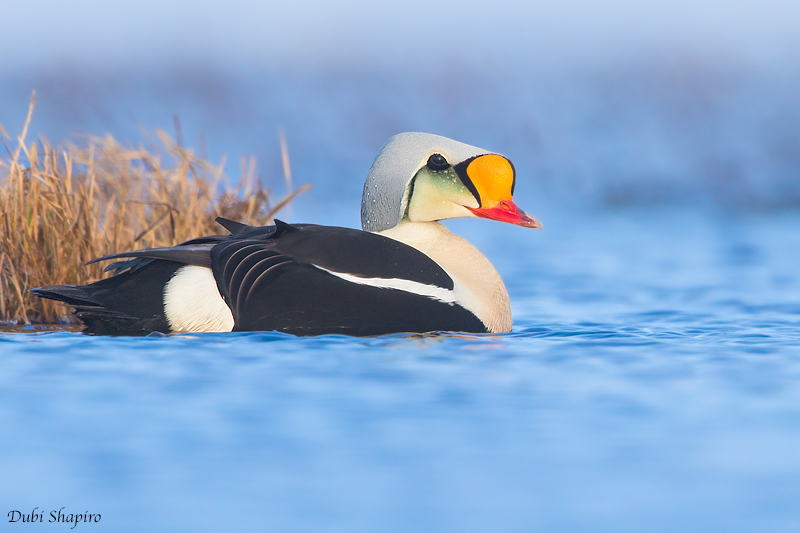
15. What Climate Change Looks Like for North-East Atlantic Seabirds
Several studies show that seabirds in the Northern Hemisphere that feed on fish are being affected by climate change, and their reproductive success is already declining. In the United Kingdom alone, 14 seabird species are at risk or already in decline due to climate change, including the iconic Atlantic Puffin (Fratercula arctica).
It is predicted that this species could lose up to 90% of its population across Britain and Ireland by 2050 if current trends continue. BirdLife has contributed to a new publication, led by the Zoological Society of London and the University of Cambridge, which proposes conservation guidance to help save 47 seabird species from climate change vulnerability in the North-East Atlantic.
The publication assesses specific needs and proposes concrete actions to preserve these species.
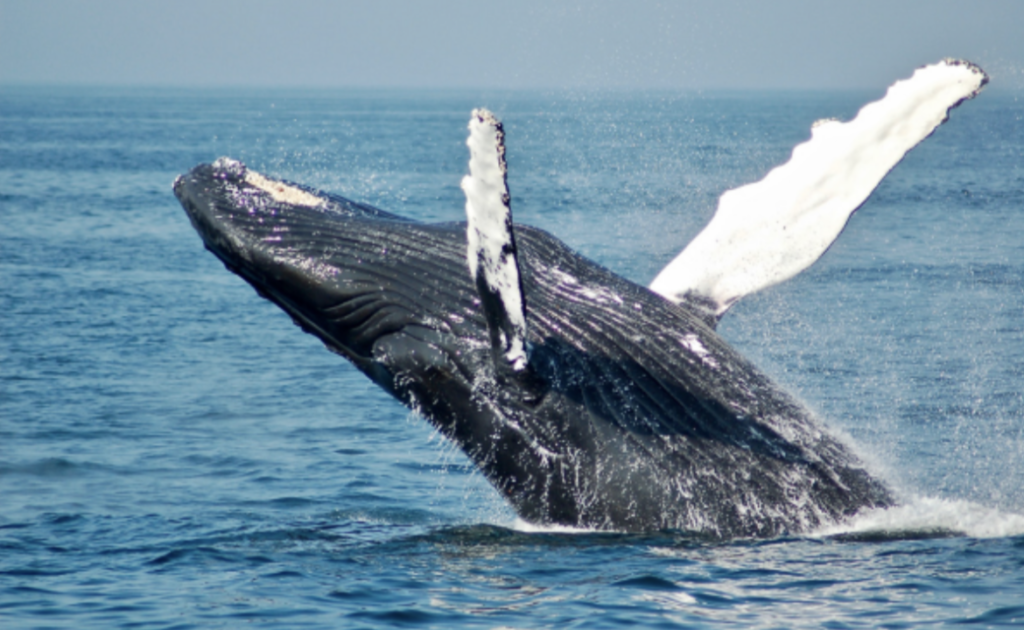
16. Why Are so Many Whales Washing up Dead on East-Coast Beaches?
Whales have been dying in elevated numbers along America’s east coast since 2016. So much so that the National Oceanic and Atmospheric Administration, the federal agency that monitors fisheries and oceans, declared the existence of an “Unusual Mortality Event” back in 2017.
Prior to 2007, Rob DiGiovanni, the chief scientist at the Atlantic Marine Conservation Society, which surveys wildlife and conducts necropsies, said he saw stranded whales just once every two years. Then it became one to three a year; now it is every few weeks.
Since the start of December, 29 dead whales, including right whales, whose numbers are already precarious, have washed ashore along America’s east coast. Luna was the tenth of 13 whales to be found dead on New York and New Jersey beaches. Scientists are trying to figure out why.

17. Why It’s so Hard to Fix the World’s Plastics Crisis
Around 85% of plastic packaging globally ends up in landfills, and in the US, only 5% of the over 50 million tons of plastic waste produced by households in 2021 was recycled. Plastic production is expected to triple globally by 2060, creating carbon pollution that fuels climate change and polluting oceans.
It is just more expensive to recycle than produce new plastic. Major plastics producers, including Nestle have broken promises to promote recycling and use more recycled plastic. A global plastics treaty is being negotiated to introduce universal plastic regulations to streamline the production, use, and reuse of plastic using a circular economy model.
However, the myth of recycling, in its current guise, is doing little to alleviate the mounting plastics crisis as the post-consumer plastic resin created from recycled material is being undercut by cheaper prime material. The packaging industry is facing criticism over flexible packaging, which is non-recyclable and often ends up in landfill or discarded in the environment.
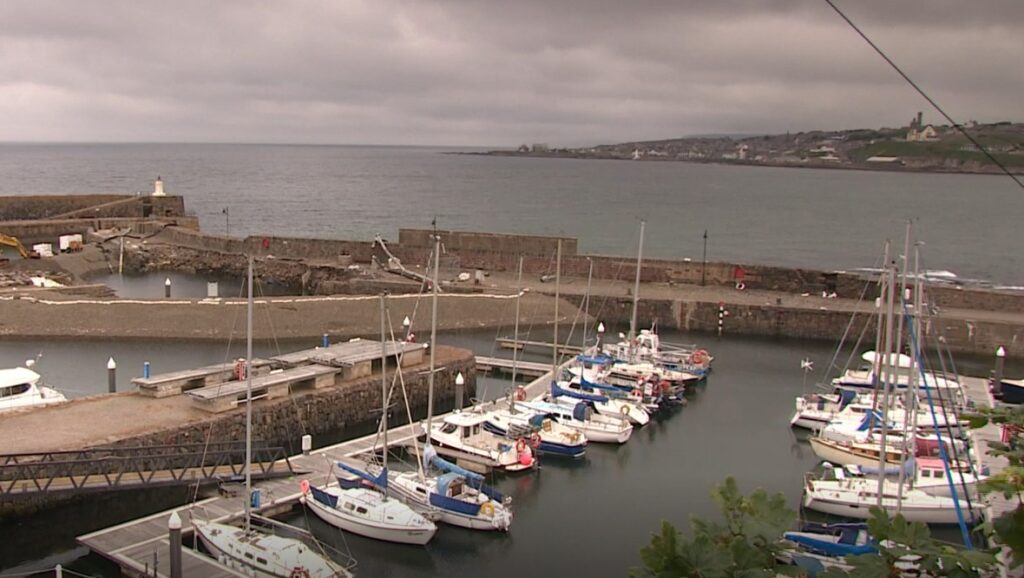
18. New Scottish Marine Protected Area Plan Requires ‘Radical Rethink’
The Scottish Fishermen’s Federation (SFF) has opposed the proposed creation of Highly Protected Marine Areas (HPMAs) off the coast of Scotland. The SFF argues that the HPMAs would have a “catastrophic impact” on the fishing industry and that the proposals are being made for “purely political reasons”.
The proposed HPMAs would close at least 10% of Scottish seas to commercial and recreational fishing, with similar proposals being piloted in England. Existing Marine Protected Areas already cover around 37% of Scottish waters.
The SFF has called for the government to reconsider and to pilot two HPMAs to assess their impact, saying that “the proposals will have a catastrophic impact on the fishing industry and our coastal communities that depend on it for jobs and income.” Other fishing bodies and island communities in Scotland have also criticized the plans. The consultation period on the proposals ends on April 17.

19. L.A. County Has Prevented 40,000 Pounds of Trash from Entering the Ocean since February
L.A. County has prevented storm trash from flowing into the ocean by using a device called “The Interceptor.”
“I think the amount of rainfall that we have had this season is unprecedented, and that means the amount of material that gets carried through the system is also unprecedented,” said Phyllis Grifman, the executive director of the USC Sea Grant program.
“The storms that we are having now are still putting out a lot of pollutants into the coastal ocean, especially particular matter, trash and of more concern are microplastics,” Grifman said.
“The Interceptor” device sits at the mouth of the Ballona Creek near the city of Marina del Rey. It has been in operation since October 2022, and in that time it has captured 122,000 pounds of trash.
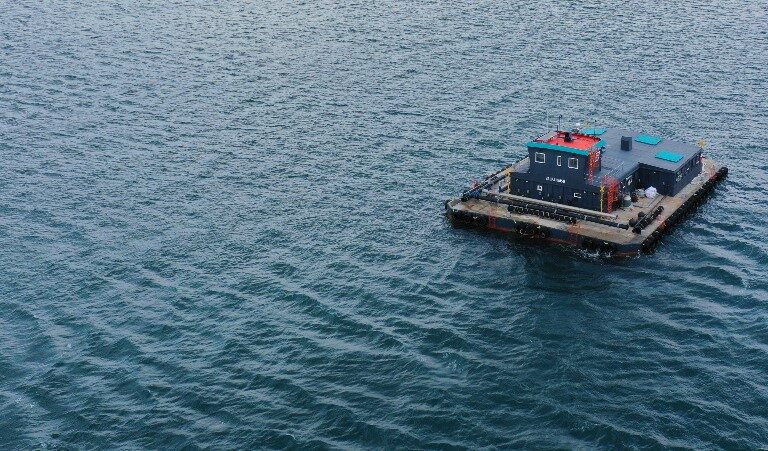
20. In Chile’s Patagonia, Another Salmon Plant Angers Water Defenders
A recently opened salmon processing plant in southern Chile is raising concerns about whether environmental regulations were properly carried out to prevent contamination of marine ecosystems and clean drinking water.
The Dumestre salmon plant near the city of Puerto Natales is receiving backlash from conservationists and residents who say the facility is at risk of dumping waste in the fjords and channels of southern Chile. Some residents, including Indigenous Kawesqar, also complain that the plant made an aggressive push into the area without properly consulting them.
Aquaculture, which involves the farming or cultivation of freshwater and marine species, has become a growing environmental concern in recent decades as Chile climbs the list of the world’s largest producers of salmon and trout. Many aquaculture methods have been known to deplete oxygen in the water, kill off coral reefs, and compromise other fish populations with antibiotics.
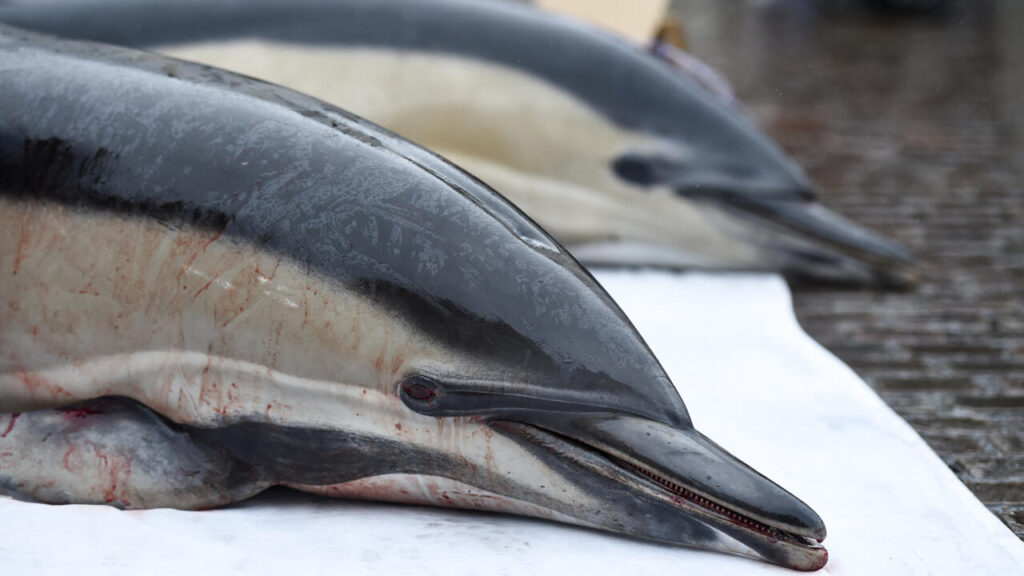
21. French Court Orders Fishing Ban after Hundreds of Dolphins Wash up on Coast
On March 20, France’s top administrative court ordered the government to ban fishing in parts of the Atlantic to protect dolphins that have washed up dead in their hundreds.
The move by the State Council comes days after an oceanographic institute reported that at least 910 dolphins had washed up on France’s Atlantic coast since the start of the winter.
Several environmental NGOs, including Sea Shepherd, had filed a legal complaint against the government over the dolphin and porpoise deaths.
Most of the dolphins found showed injuries consistent with being caught in nets, other fishing equipment, or boat engines. Many died in February and March, when dolphins usually move closer to the coast looking for food and are more likely to come in contact with fishing operations.




